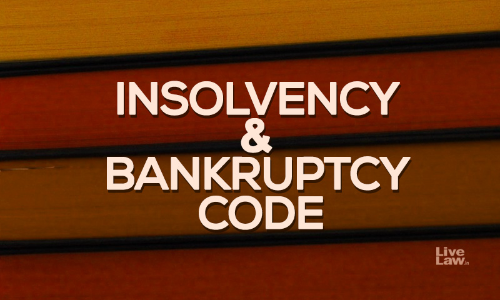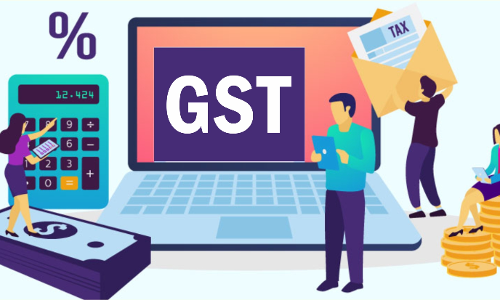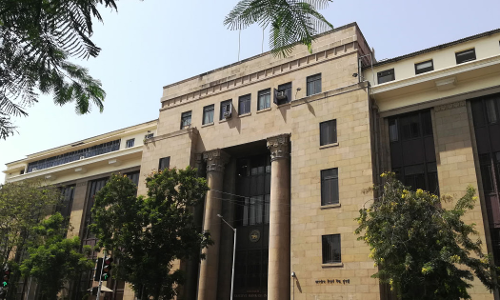Law Firm Articles
Liability Of Personal Guarantors Under IBC: A Legal Quandary
Talking of the stature of a personal guarantor, the build might vary in the n number of cases, yet what would resonate to each of the descriptions and would make them stand in unison, with no second thoughts would be their 'plight'. Don't let those lines of worry rest on your forehead after reading this since we won't let you stay puzzled for too long. We promise! Wondering what made our beliefs so firm regarding this concern? You'll get to know all of it within six to seven minutes of...
'No Compromise on Preparation before Mediation'
It was an absolute pleasure engaging in an intriguing fireside chat on 'Prepping Your Client for Mediation', organised by CAMP Arbitration and Mediation Practice and IDEX Legal. This was the second episode of #WinThisTogether – a series on the various aspects of Advocacy in Mediation. More information on the Fireside Chat series and the subsequent episodes is available HERE Laila Ollapally, founder and lead mediator, CAMP, set the mood with an inspiring keynote, addressing the role of a...
Damages vs Limitation of Liability
This article examines the conflict between damages as entitled under law versus limiting the damages contractually, more specifically, the issue of whether clauses in a contract such as limitation of liability or such others can disentitle a person from claiming the full amount of damages which a person is otherwise entitled to under law. In this connection, reference may be made to Sections 55, 73 and 74 of the Indian Contract Act, 1872 ("Act") deal with compensation for loss or...
Supreme Court Closes Doors For Withdrawal Or Modification Of Resolution Plans After Acceptance By Committee Of Creditors
The Supreme Court of India, on 13.09.2021, delivered a landmark judgment which has settled the issue of whether withdrawal or modification of the Resolution Plan by the Resolution Applicant, after acceptance by the Committee of Creditors ("CoC") but before approval of the Adjudicating Authority/NCLT, is permissible or not. The bench of Justices D.Y. Chandrachud and M.R. Shah while deciding three Appeals filed by Ebix Singapore PTE Limited, Kundan Care Products Limited and Seroco...
IBC Moratorium Vs Cheque Dishonour Proceedings
The Hon'ble Supreme Court of India has, in the matter of P. Mohanraj & Ors. Vs M/s. Shah Brothers Ispat Pvt. Ltd. has clarified the difference between section 14 of the IBC Code, 2016 and section 138/141 of the Negotiable Instrument Act. Besides determining the difference between the two, Hon'ble Court has also emphasised whether Moratorium under Section 14 of IBC Covers Section 138 of NI Act Proceedings against Corporate Debtor for Cheque Dishonour. First, Hon'ble Court has made...
Medima LLC V. Balasore Alloys Limited
Recently in Medima LLC v. Balasore Alloys Ltd[1], the Hon'ble Calcutta High Court vide its order dated 3rd August 2021 has reiterated that the interim measures available to a party under Section 9 of the Arbitration & Conciliation Act, 1996 ("Act") are applicable to foreign awards unless clearly excluded by the parties in the arbitration agreement.In the present case, Medima LLC ("Medima") and Balasore Alloys Ltd. ("Balasore") had entered into an Agreement dated 31st March 2018...
GST As A Force Majeure Event – In Arbitration Contracts
The High Court of Delhi has recently ruled that the implementation of Goods and Service Tax Act, 2017 (hereinafter referred to as the "GST"), came within the definition of a force majeure event. This ruling came when the petitioner, the National Highways Authority of India (hereinafter referred to as "NHAI") approached the High Court in an application under Section 34 of the Arbitration and Conciliation Act, 1996 (hereinafter referred to as the "A&C Act"), challenging an award of a...
The Impact Of The Proposed Revamp Of E-Commerce Rules In India
On June 21, 2020, the Indian government issued draft rules (the "Draft Amendment") to amend the Consumer Protection (E-Commerce) Rules, 2020 (the "E-Commerce Rules"), which were introduced in July 2020. The Draft Amendment been issued against a backdrop of complaints made by consumers and sellers operating on e-commerce platforms on the manner in which e-commerce entities conduct their business in India. In this update, we discuss the key changes that have been proposed and their...
New Compliance Requirements For Payment Companies: RBI Releases Outsourcing Framework For Non-Bank PSOS
In 2020, the Reserve Bank of India (RBI) issued guidelines to regulate payment aggregators and payment gateways. The existing framework mandates banks and NBFCs to follow various rules for outsourcing of financial services, which include among others, conducting due diligence of service providers, evaluating risk and capability of service providers, and monitoring and controlling the outsourced activities. On the same lines, on August 3, 2021, the RBI released a framework (New...
Constitutional Tort
The responsibility that an individual bears for the actions of another is known as vicarious liability. It's a common theme in master-servant partnerships. In general, a constitutional tort is a legal tool that allows the state to be held vicariously accountable over the actions of its agents. If any of the civil rights are abused, there is a judicial attempt to obtain a legal redress in the form of damages. The sole difference is that if the act is performed in the execution of...
Process Analysis Of Pre-Packs : The Next Step In The Evolution Of Insolvency Regime In India
The enactment of the Insolvency and Bankruptcy Code, 2016 ('the Code') provided a new insolvency regime to the country in order to resolve the corporates and individuals, undergoing financial distress, in a time bound manner. Given the fact that the market for the new professions created by the Code have sufficiently matured and the processes introduced by it have adequately evolved, the Government found it feasible to explore new initiatives in order to further improve the effectiveness of the...
How do Lawyers Refer Mediation to clients?
We had the recent privilege to participate in a panel discussion on "Pitching Mediation to Clients" organized by CAMP and IDEX Legal. It was the Inaugural session of a six-session series on the various aspects of Advocacy in Mediation. More information on the Fireside Chat series and the subsequent sessions planned is available HERE The Panel on Pitching Mediation to Clients comprised persons of diverse competencies who shared the same objective – how do you successfully pitch...














